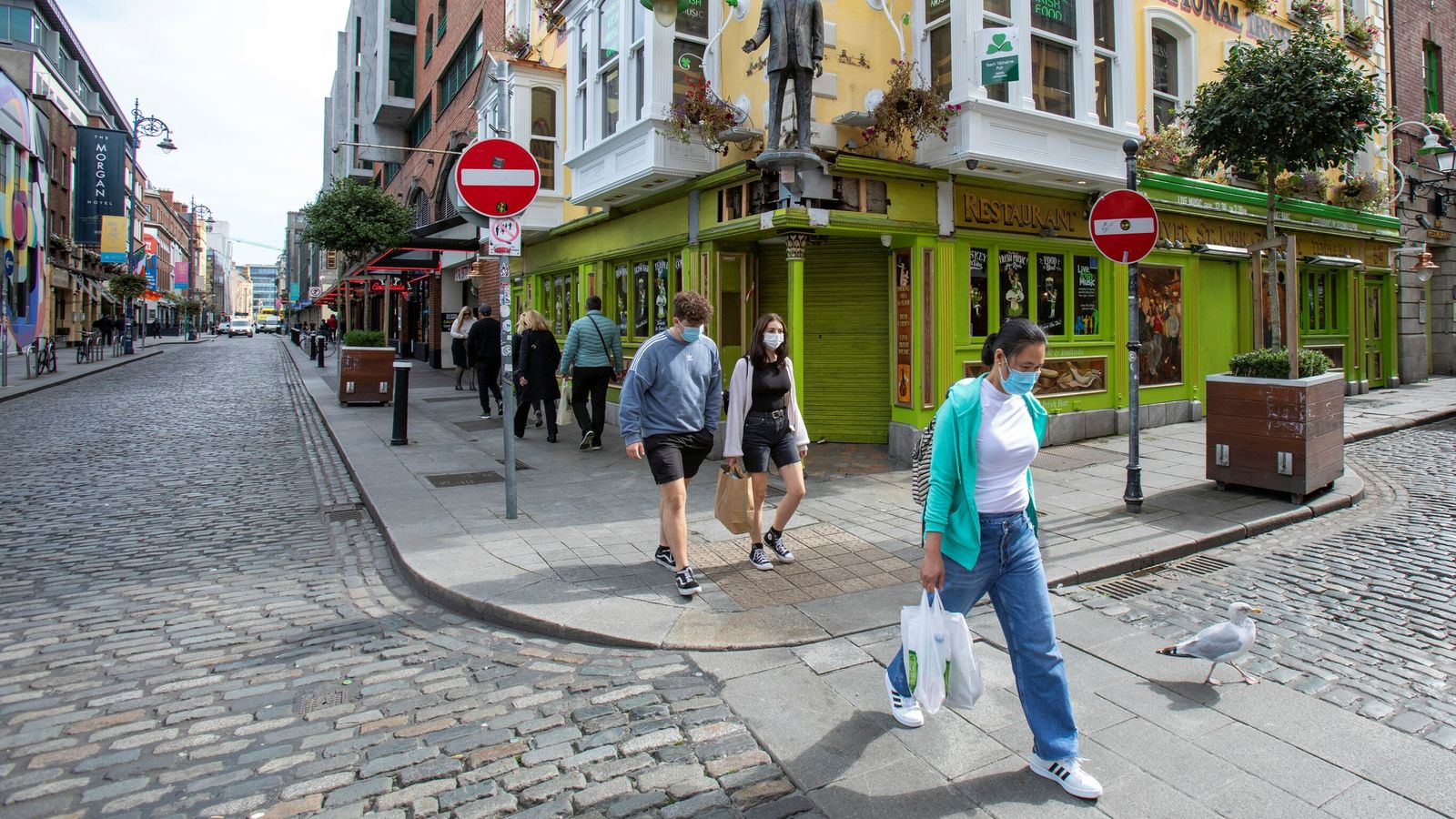Ireland is tightening coronavirus rules but will not go into a second national lockdown – despite calls from the country’s health chiefs.
Following a cabinet meeting, Prime Minister Micheal Martin announced that Ireland would move from level 2 of its restrictions to level 3 – with new measures including a ban on all indoor restaurant dining.
The move, which will come into force from midnight tomorrow, will last at least three weeks.
It comes despite a call from the country’s National Public Health Emergency Team (NPHET) for the country to move to level 5 – a second national lockdown.
Mr Martin said: “Businesses are beginning to recover and vital public health services are still backlogged.
“Severe restrictions now would have a very damaging impact which those services and businesses may not be able to recover from.
“We have decided, at this stage, not to move to a more comprehensive lockdown.”
The NPHET recommendation on Sunday came just three days after the group told ministers the current restrictions – at level 2 – were appropriate for most of the country.
Ireland will stay at level 3 until 27 October, meaning social and family gatherings and organised indoor gatherings will be banned, except for funerals and weddings.
:: Subscribe to Sky News’ podcasts on Apple Podcasts, Google Podcasts, Spotify, Spreaker
People will be asked to stay within their county and work from home unless it is absolutely unavoidable, while schools and other education establishments should remain open.
Shops, outdoor playgrounds, play areas and parks may stay open, as can hairdressers, beauticians, barbers, opticians provided they follow the rules on protective measures.
Hotels, guesthouses and B&Bs may remain open, but with services limited to residents.
Restaurants and cafes, including bars, pubs serving food or wet pubs (ones that don’t serve food) may remain open for takeaway and delivery and outdoor dining/service to an absolute maximum of 15 people.
Wet pubs in Dublin remain closed, along with all of Ireland’s indoor museums, galleries, cinemas and other cultural attractions.
Level 5 would have seen people asked to stay at home, except to exercise within three miles (5km) and only essential retailers allowed to stay open.
Ireland reported the highest number of daily new infections since late April on Saturday, but its 14-day cumulative case total stands at 104 per 100,000 people.
That puts the country 14th in terms of infection rate among 31 European countries monitored by the European Centre for Disease Control.
But one of the health officials who advised a lockdown said Ireland’s limited hospital capacity meant it could run out of intensive care beds by the start of November if the current trajectory of COVID-19 cases continued.
Ireland has recorded 1,810 deaths among 38,549 people who have caught coronavirus, according to Johns Hopkins University, which is tracking the pandemic.
